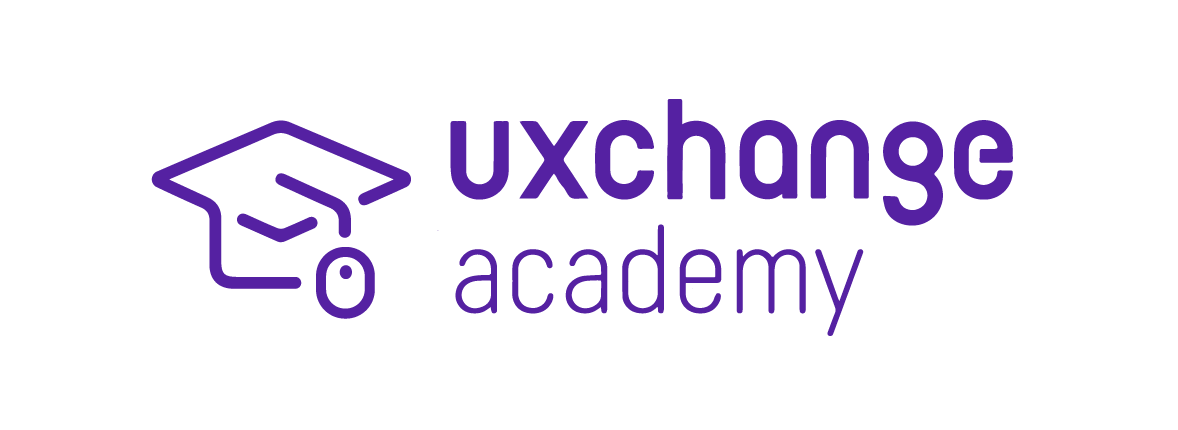Mental Model Skylines Part 1: Qualitative Data Synthesis (Concepts & Summaries)
If you want to bring bedrock-deep, reliable information to your organization, you need a structured approach to understand people’s cognition. (What comes before their “behavior.”)
A mental model skyline is the visual skeleton that will hold your experimental data as it shifts over the decades. It will guide your product strategy and help you launch new services in unthought of directions. You don’t need prior research expertise for this course, but you need the mindset of dwelling in details before painting the landscape. You also need to understand the paradigm-shifting ideas about interviews that listen deeply, from the course or the book. Assess your readiness with this quiz.
Self-paced course
Closed captions
Last updated August 2025
Join Indi’s Slack community
6 month access
About the course
There are two steps to finding the patterns that will become your mental model skyline. The first step is finding the concepts to compare across participants. Currently, transcript analysis within “fast UX” tends to be top-down: you choose what insights you’re interested in, which means your cognitive bias influences your research and conclusions.
This course teaches bottom-up synthesis: a method that helps you avoid cognitive bias and let people’s different perspectives get represented their way. It requires keeping a neutral mindset and looking at the transcripts for types of concepts, not concept meaning. The meaning will bias you toward the things you are already interested in.
Course Sections:
Section 1 – Introducing Data Synthesis
1.1 Data Synthesis for Everyone
1.2 Why Synthesis – Build Trust in Qual Data
1.3 Why Synthesis – Resist Assumptions
1.4 Concepts
1.5 Summaries
1.6 Brainstorm Verbs
1.7 Brainstorm Emotions
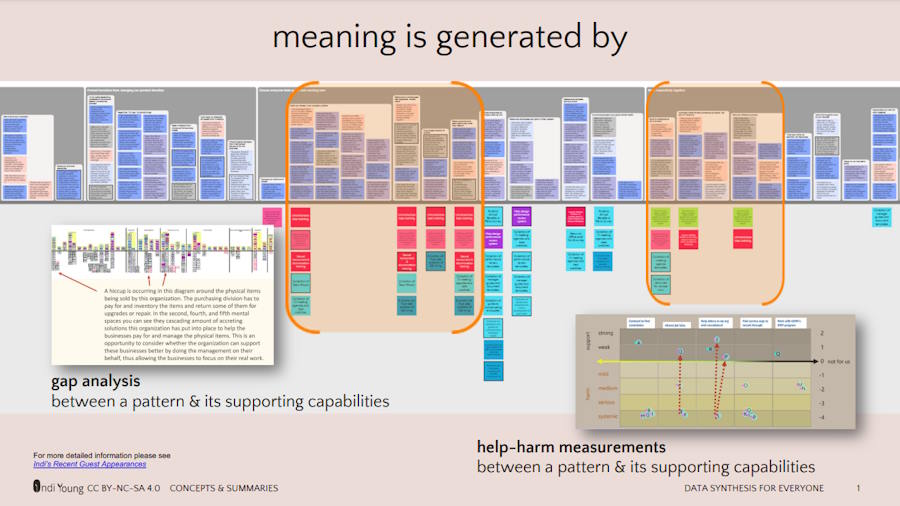
Section 2 – Finding Concepts
2.1 The Role of Transcripts
2.2 Quote as Concept
2.3 Repeated Concepts
2.4 Tangled Concepts
2.5 Implied Concepts
2.6 Prune the Quote
2.7 Example: Plastic-Wrapped Car
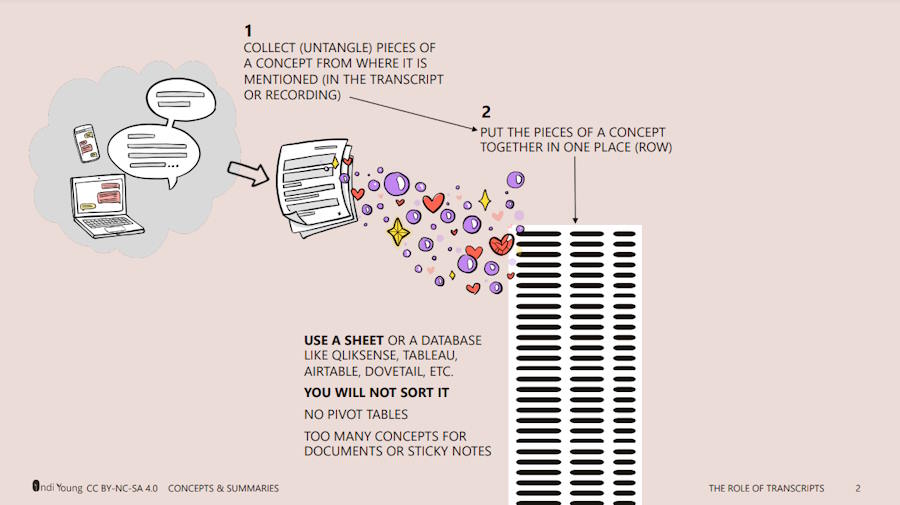
Section 3: Writing Summaries
3.1 Determine the Key Point
3.2 Add Supporting Details
3.3 Use Their Words
3.4 Tame Your Verbs
3.5 Nuances of Emotions
3.6 Review for Clarity
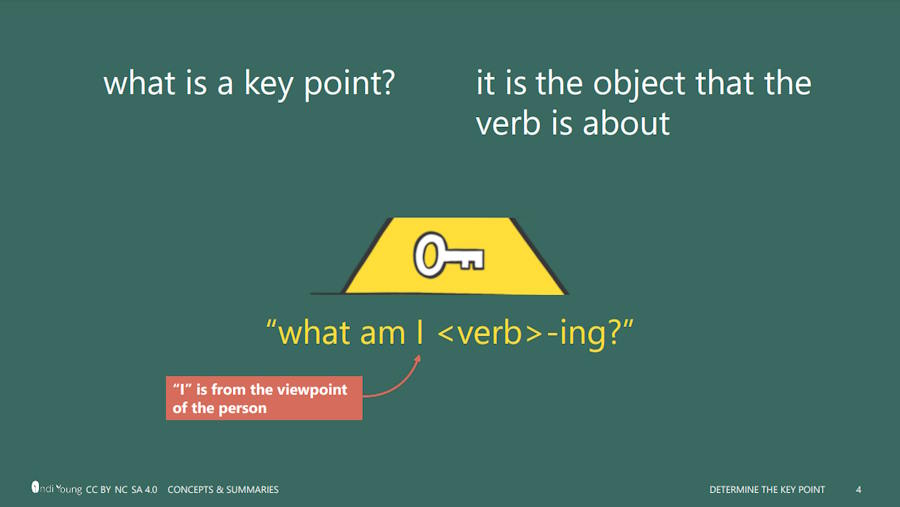
Section 4: The Process of Synthesis
4.1 Confidence in Your Work
4.2 The Pace of Work
4.3 Working Together
4.4 Speeding It Up
4.5 Preview: Cultivating Patterns
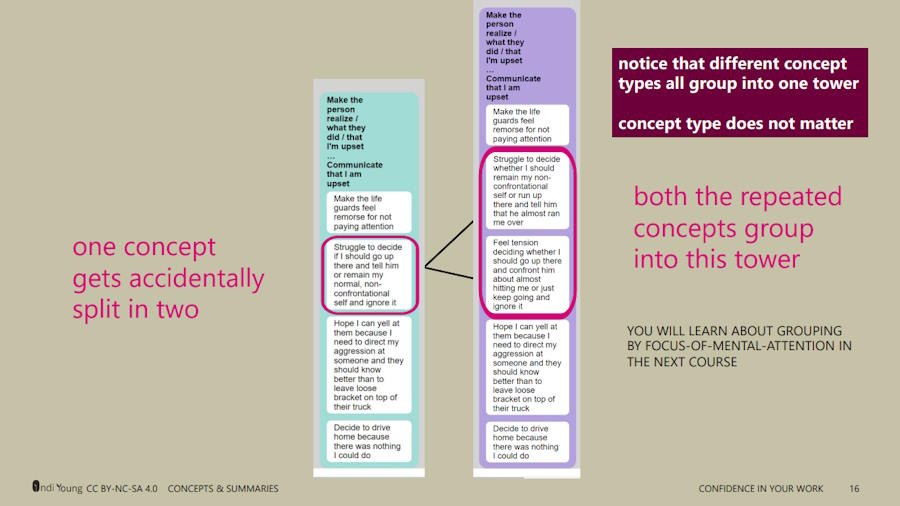
Who is this for?
If you are new to research, this course plus the next course will give you a solid foundation for seeing how patterns arise from the data. It replaces the imperative to just “find affinities.”
If you are an experienced researcher, these two courses will add the craft of synthesis to your skill set. Synthesis allows other people’s perspectives and ideas to take precedence over your own way of making sense of what was said. Synthesis is different than analysis. You might have learned analysis in the university, not knowing there was another method.
If you manage a research team, mentoring people and helping them grow their skillsets is key to your team’s success. Getting a taste of what qualitative data synthesis produces, and how it is used, will give you clarity into what kind of time and resources your team needs for different types of studies.
If you manage a product, inclusivity and reducing harm might be one of the strategic directions you want to follow. If you follow how data synthesis works, its power will actually unlock some of your other strategic directions, such as growing the number of people you support with your solution. You may not need to take these courses, but you need to understand what is going on here, and how it is different than data analysis. Skim through the videos and pick up some clarity, and some inspiration.
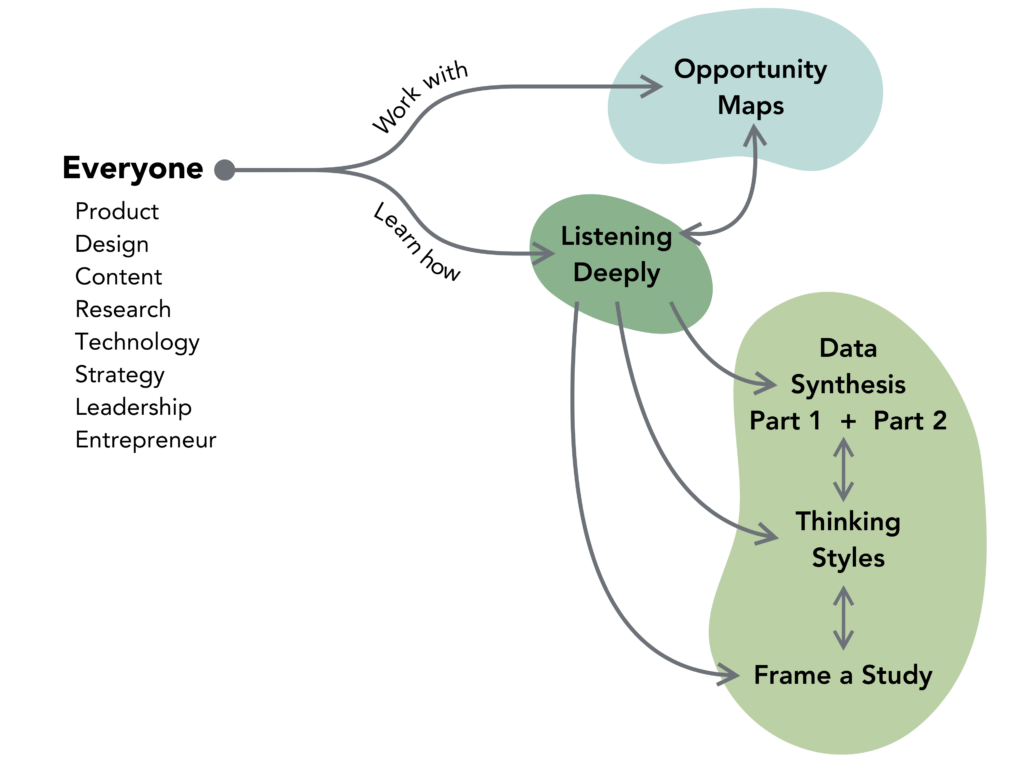
Course Features
- 25 videos, in 4 sections
- Total video time: 11.75 hours
- Demos and examples
- Practice, reflections & quizzes
- Closed captions
- Listen w/ or w/out the screen
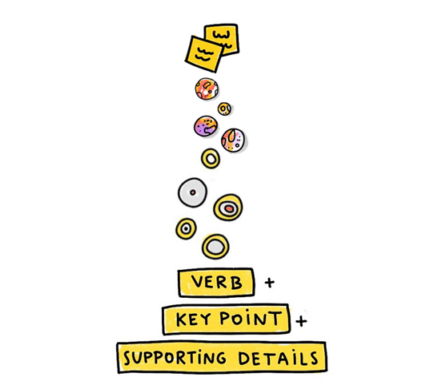
Price levels – Part 1 Data Synthesis
SOLSTICE SALE 50% off, 20-21 June 2025
see discount codes in posts and newsletters
Click here to compare courses for your role
Testimonials
You will learn how to get a deep understanding of people. This is something that probably nobody else has ever taught you. If you’re truly interested in getting the most out of your research interviews, then this course is a must! What you’ll learn is not only a valuable professional…
— Sonja, 14-May-2018
Read moreIndi’s training has transformed the way I think about patients and products I design for them. Thank you for sharing this wisdom, knowledge and experience!
— Gosia, 2-Jan-2019
The framework you will learn here is invaluable whether or not your end-goal is mental-models. It helps you divide the shapeless mass of an interview into purposefully formatted chunks. These will then enable you to have meaningful discussions about qualitative data. Not only that, you will also learn what…
— Yousef Kazerooni, 14-May-2018
Read moreThis is a great way to further your skills, whether you are two years into your career or longer. I’m excited to use these new skills in my next applicable project. It was so refreshing to learn something actually useful and new instead of going to a conference where you…
— Jordan Smith, 31-Jan-2019
Read more
Part 1: Concepts & Summaries helps you break down people’s thinking into it’s core elements, allowing you to capture the full-depth of what people say. Without a doubt, the skills from this training series improved my ability to turn my research into impactful insights that help organizations step into their…
— Eddie Fernandez, 15-May-2018
Read moreVery hands-on. You’ll need mental stamina to get the most out of coursework but it’s a valuable learning experience! Don’t expect to sit back and absorb information.
— Hannah, 5-Feb-2019
Frequently Asked Questions
Q: If I have questions about the course content, will Indi answer them for me?
A: Asking a question in the Slack community will give Indi, her team, and many other Slack members a chance to see the question and respond to it.
Q: Do the recordings qualify me for Indi’s Problem Space Certification Program?
A: Not quite. You will also want to join the Live Practice series for each course. In these Live Practice meetings, you get to work on exercises together with Indi and others. This is where we discuss nuances of context and share experiences that help others prepare to conduct their own research. Live Practice meetings give you a chance to double your knowledge and demonstrate your understanding.







